Food Diet

What are some easy ways to reduce sugar intake in my diet ?
Reducing sugar intake is crucial for a healthy lifestyle. Here are ways to reduce sugar in your diet: read food labels, avoid sugary drinks, choose whole foods, cook at home, swap sweet treats for healthier options, limit added sugars in beverages, and gradually reduce sugar intake. By following these steps, you can significantly lower your sugar consumption and improve your overall health.

Can sports supplements replace a healthy diet ?
Sports supplements can enhance performance and provide targeted nutrients, but cannot replace a healthy diet. Whole foods offer complete nutrition necessary for overall health. Supplements may cause side effects and are expensive. Prioritize a well-balanced diet and use supplements judiciously to support specific goals.
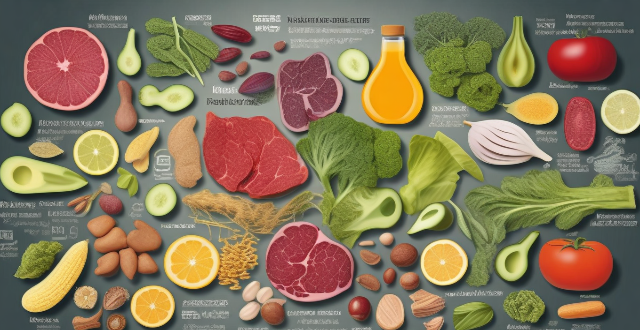
How does diet affect personal health ?
The article discusses the importance of a healthy diet in maintaining good health. It explains what constitutes a healthy diet and its benefits, such as reducing the risk of chronic diseases, improving mental health, managing weight, strengthening the immune system, and improving sleep quality. The article also provides tips for maintaining a healthy diet, including eating a variety of foods, limiting processed foods, watching portion sizes, being mindful of eating habits, getting enough sleep, and staying active.
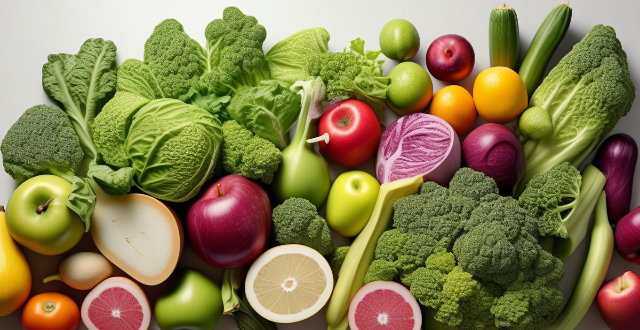
How can I improve my athletic performance through diet
Improving athletic performance through diet involves eating a balanced diet, increasing protein intake, consuming plenty of fruits and vegetables, drinking enough water, avoiding processed foods, eating before training or competition, and considering supplements. A balanced diet includes carbohydrates, proteins, and healthy fats in the right proportions. Protein is essential for building muscle and repairing damaged tissues, while fruits and vegetables are rich in vitamins, minerals, and fiber. Drinking enough water is crucial for staying hydrated during exercise. Avoiding processed foods can prevent harm to your performance and health. Eating before training or competition can provide energy and prevent fatigue. Supplements such as whey protein powder, amino acids, and BCAAs can improve performance but should be taken under the guidance of a nutritionist or doctor.
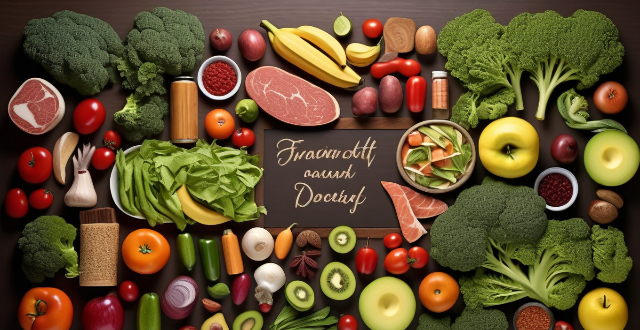
How can I make sure my child is getting a healthy, balanced diet ?
Ensuring a healthy, balanced diet for your child involves offering a variety of foods, limiting junk food and sugary beverages, planning meals, practicing portion control, and being a role model.
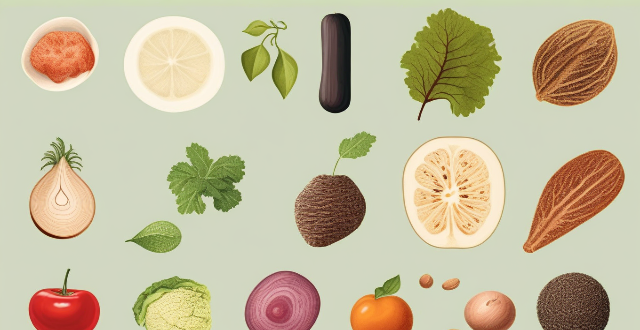
What kind of diet do celebrities follow ?
Celebrities maintain their physique and appearance through various diets, each with its benefits. Clean eating focuses on whole foods, boosting energy and digestion while aiding weight loss. The vegan diet eliminates animal products, reducing the risk of chronic diseases and improving skin health. The keto diet promotes rapid weight loss, increased energy levels, and reduced inflammation. While these diets work for some celebrities, individual needs vary, and it's essential to consult a healthcare professional before making significant changes to one's diet or lifestyle.

Can following a vegetarian or vegan diet be considered healthy ?
A vegetarian or vegan diet can indeed be considered healthy, but it depends on how well-planned and balanced the diet is. Here's a detailed analysis: ## **Nutritional Requirements** ### *Protein* Vegetarians can get protein from sources like beans, lentils, tofu, tempeh, and dairy products. Vegans need to rely on plant-based proteins such as legumes, grains, nuts, and seeds. ### *Iron* Plant-based sources of iron include leafy greens, beans, and fortified cereals. However, the absorption rate of non-heme iron (from plants) is lower than heme iron (from animals). Consuming vitamin C-rich foods can enhance iron absorption. ### *Calcium* Vegetarians can get calcium from dairy products. Vegans need to find sources like fortified plant milks, tofu, and certain greens. ### *Vitamin B12* This nutrient is only found naturally in animal products. Vegetarians who consume dairy or eggs don't usually have a deficiency, but vegans must rely on fortified foods or supplements. ### *Omega-3 Fatty Acids* Flaxseeds, chia seeds, hemp seeds, and algae-based supplements are good sources for vegans. Vegetarians can also get it from fish. ## **Potential Health Benefits** - **Lower Risk of Chronic Diseases**: Studies show that vegetarian and vegan diets can reduce the risk of heart disease, high blood pressure, type 2 diabetes, and obesity. - **Healthier Weight**: Plant-based diets tend to be lower in calories and higher in fiber, leading to better weight management. - **Rich in Antioxidants**: Fruits, vegetables, whole grains, and legumes are rich in antioxidants, which help fight inflammation and cellular damage. ## **Challenges and Considerations** - **Nutrient Deficiencies**: Without proper planning, vegetarians and especially vegans may face deficiencies in certain nutrients like vitamin B12, iron, calcium, and omega-3 fatty acids. - **Limited Food Choices**: Avoiding entire food groups can make meal planning more challenging and limit variety. - **Social and Cultural Factors**: Eating out or attending social events where vegetarian or vegan options are not readily available can be difficult. ## **Conclusion** Adopting a vegetarian or vegan diet can be very healthy if it is well-planned and balanced to meet all nutritional needs. It's essential to ensure adequate intake of key nutrients that might be lacking in plant-based diets. Consulting with a registered dietitian can help individuals navigate these challenges and create a sustainable, healthy eating plan.

How do I ensure I'm getting enough nutrients on a vegetarian diet ?
This topic discusses the essential nutrients to watch on a vegetarian diet and provides tips for meal planning. It highlights key nutrients such as protein, iron, vitamin B12, calcium, vitamin D, and omega-3 fatty acids and suggests food sources for each. The text also emphasizes the importance of diversifying intake, considering supplementation, having regular check-ups, and working with a professional to create a balanced meal plan. Overall, it offers guidance on ensuring adequate nutrient intake while following a vegetarian diet.

How can women ensure they are getting enough calcium in their diet ?
Calcium is crucial for women's health, especially for maintaining strong bones and teeth. Women can ensure they are getting enough calcium by knowing their requirements, including calcium-rich foods in their diet, considering supplements if needed, and maintaining a healthy lifestyle with regular exercise and limited alcohol consumption. It's important to consult with a healthcare professional for personalized advice.

What kind of diet do celebrities follow for a healthy lifestyle ?
Celebrities often follow specific diets to maintain their health and appearance, including the Mediterranean, Vegan, Paleo, Keto, Intermittent Fasting, Juicing, Plant-Based, Clean Eating, DASH, and Mindful Eating diets. These diets offer various benefits such as weight loss, improved heart health, better digestion, and enhanced mental clarity. Celebrities like Jennifer Aniston, Beyoncé, Matthew McConaughey, Halle Berry, Hugh Jackman, Salma Hayek, Ellie Goulding, Gwyneth Paltrow, Queen Latifah, Adele, and Jennifer Lawrence have incorporated these diets into their lifestyles.
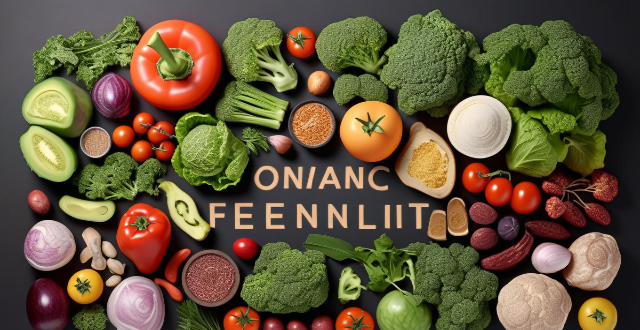
Can eating organic food prevent diseases ?
Eating organic food may offer some potential benefits for disease prevention, such as reduced exposure to pesticides and chemicals, higher antioxidant levels, and better nutrient content. However, the overall evidence supporting its ability to prevent diseases is limited, and other factors influencing disease risk should also be considered when making dietary choices. It is important to prioritize a balanced and varied diet rich in fruits, vegetables, whole grains, lean proteins, and healthy fats while minimizing intake of processed foods and sugary beverages.

Can taking sports nutrition supplements compensate for a poor diet and lack of exercise ?
Sports nutrition supplements cannot fully compensate for a poor diet and lack of exercise. While these supplements can provide certain nutrients essential for athletic performance, they cannot replace the overall benefits of a healthy lifestyle. A balanced diet and regular exercise are crucial for maintaining good health and supporting athletic performance. Supplements should be used cautiously and with guidance from a healthcare professional to ensure they complement your overall lifestyle rather than replace it.
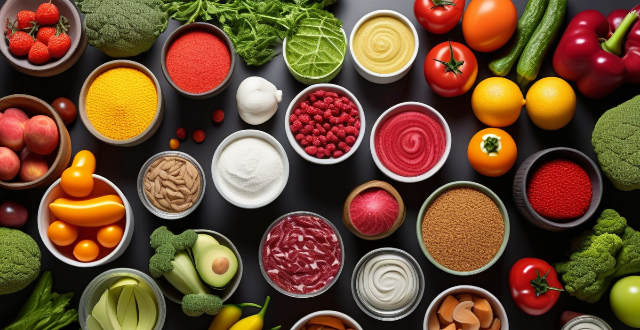
What are the health benefits of including more Chinese food in my diet ?
Incorporating Chinese food into your diet can offer a range of health benefits, including balanced nutrition, lower unhealthy fats, antioxidants and phytonutrients, heart health, weight management, digestive health, reduced risk of chronic diseases, variety and flavor. It's important to consume deep-fried items and dishes with high sugar content in moderation to fully reap the health rewards of Chinese cuisine.
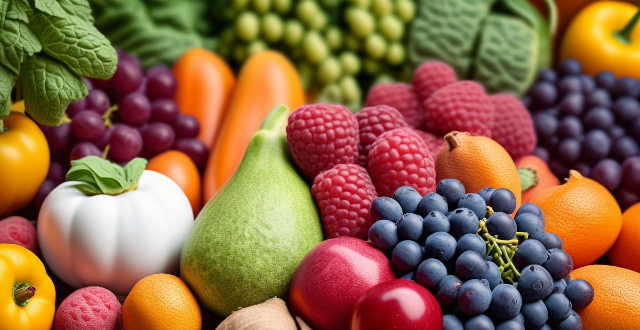
Is it true that certain superfoods can boost your immune system ?
Incorporating superfoods like citrus fruits, garlic, ginger, spinach, yogurt, nuts and seeds, blueberries, and turmeric into your diet can help support immune health by providing key nutrients such as vitamin C, vitamin D, zinc, protein, and antioxidants. These foods offer a range of benefits including boosting white blood cell production, reducing inflammation, supporting digestive health, and protecting against oxidative stress. However, it's important to maintain a balanced diet and lifestyle for overall immune support.

How can I incorporate more plant-based meals into my family's diet ?
Incorporating more plant-based meals into your family's diet can lead to improved health, weight management, and a reduced environmental impact. Here's how to do it: 1. **Understand the Benefits**: Improved health, weight management, and environmental sustainability are key advantages of a plant-based diet. 2. **Gradual Transition**: Start by replacing one or two meals per week with plant-based options to ease your family into the change. 3. **Meal Ideas**: Try Meatless Mondays, vegetable-centric dinners, and incorporating plant-based proteins like tofu and beans. 4. **Involve Your Family**: Get your family excited about the change by letting them choose recipes and shop for ingredients. 5. **Shopping Tips**: Buy fresh produce, stock up on staples like grains and legumes, and experiment with new foods. 6. **Education and Resources**: Use online resources like websites, YouTube channels, and cookbooks to learn about plant-based eating. 7. **Meal Planning and Preparation**: Plan weekly meals, consider batch cooking, and get creative with leftovers. 8. **Emphasize Flavor and Creativity**: Use herbs, spices, marinades, and sauces to add flavor, and don't be afraid to experiment with different cooking techniques.

What is a good marathon diet plan ?
A good marathon diet plan should provide the necessary nutrients and energy to support an athlete's training and performance during a marathon. It should include a high-carbohydrate diet, protein needs, and healthy fats. A high-carbohydrate diet should provide around 60-70% of total daily calories from carbohydrates, while protein needs should provide around 10-20% of total daily calories. Healthy fats should make up around 20-35% of total daily calories. Good sources of carbohydrates include whole grains, fruits, vegetables, legumes, and low-fat dairy products. Good sources of protein include lean meats, poultry, fish, eggs, nuts, seeds, and plant-based proteins like tofu and tempeh. Good sources of healthy fats include olive oil, avocados, nuts, seeds, fatty fish (such as salmon), and dark chocolate.
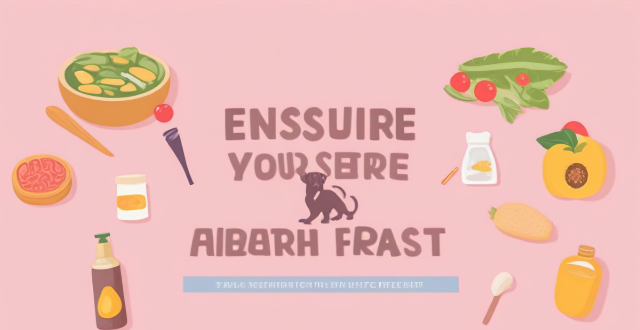
What kind of food and nutrition should I provide for my pet to ensure its health ?
To ensure your pet's health, it is crucial to provide the right food and nutrition. Understanding your pet's species-specific dietary requirements, choosing high-quality pet food, supplementing with fresh foods, monitoring your pet's weight and health, and staying informed about pet nutrition research are key aspects to consider. Tailor your pet's diet to their individual needs for a long and healthy life.

How can I manage food cravings while trying to eat healthily ?
Managing food cravings while maintaining a healthy diet can be challenging, but it's not impossible. Here's a detailed guide to help you navigate through these temptations: #### Understanding Food Cravings - **What Causes Them?** - **Emotional Responses**: Stress, boredom, or emotional upheavals often lead to cravings for comfort foods. - **Nutrient Deficiency**: Your body might crave certain foods because it needs specific nutrients. - **Habitual Eating**: Sometimes, cravings are just habits triggered by routine or environment. #### Strategies to Manage Cravings ##### 1. Plan Ahead - **Meal Planning**: Prepare a weekly meal plan that includes a variety of nutrient-dense foods. - **Smart Snacking**: Keep healthy snacks on hand to avoid reaching for unhealthy options when hunger strikes. ##### 2. Balanced Diet - **Macronutrients**: Ensure your meals have a balance of proteins, healthy fats, and complex carbohydrates. - **Micronutrients**: Include a rainbow of fruits and vegetables to cover your micronutrient needs. ##### 3. Mindful Eating - **Awareness**: Recognize the difference between physical hunger and emotional eating. - **Savoring**: Eat slowly and pay attention to the taste, texture, and aroma of your food. ##### 4. Hydration - **Water Intake**: Sometimes thirst is mistaken for hunger. Stay hydrated throughout the day. - **Healthy Drinks**: Opt for water infused with fruits or herbal teas instead of sugary drinks. ##### 5. Distract Yourself - **Short Distractions**: If a craving hits, try distracting yourself with a short walk or another activity. - **Long-Term Hobbies**: Engaging in hobbies that keep your hands busy can reduce snacking out of boredom. ##### 6. Get Sufficient Sleep - **Sleep Patterns**: Lack of sleep can increase cravings. Aim for 7-9 hours of sleep per night. ##### 7. Exercise Regularly - **Physical Activity**: Regular exercise can regulate appetite and reduce cravings. - **Mental Health**: Exercise also improves mood, reducing the likelihood of emotional eating. ##### 8. Professional Help - **Nutritionist**: Seek advice from a nutritionist to tailor a diet plan that suits your needs. - **Therapy**: If emotional eating is a significant issue, consider seeking therapy or counseling. #### Practical Tips - **Craving Journal**: Log your cravings to identify patterns and triggers. - **Healthy Substitutes**: Find healthier versions of the foods you crave. For example, swap ice cream for a banana smoothie. - **Portion Control**: Allow yourself small portions of what you crave occasionally to avoid deprivation.
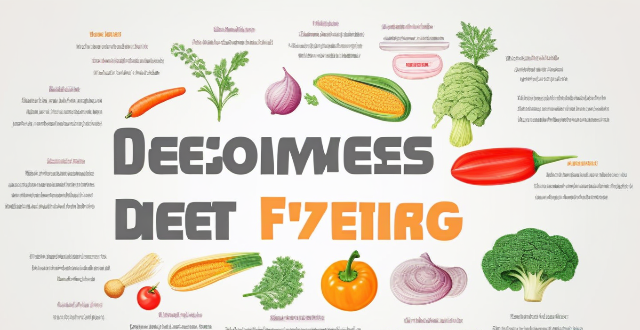
Are there any specific diets recommended for people with diabetes ?
The text discusses recommended diets for people with diabetes, including the Mediterranean diet, DASH diet, vegetarian or vegan diets, low carbohydrate diets and focusing on portion control and mindful eating. It emphasizes the importance of working with a healthcare professional to determine the best dietary approach based on individual needs and preferences.

Is organic food healthier than non-organic food ?
The debate over whether organic food is healthier than non-organic food has been ongoing for decades. While some argue that organic food offers more nutritional benefits and is better for the environment, others believe that the differences are negligible and that non-organic food can be just as healthy. In this article, we will explore both sides of the argument and try to answer the question: is organic food healthier than non-organic food? Arguments in favor of organic food include nutritional benefits, pesticide reduction, and environmental impact. Organic farming practices focus on building healthy soil and growing strong plants, which results in produce that is richer in nutrients like vitamins, minerals, and antioxidants. Additionally, organic food is grown without the use of synthetic pesticides and fertilizers, reducing the risk of harmful chemicals ending up in our food supply. Finally, organic farming practices promote biodiversity, reduce pollution, and help preserve natural resources. Arguments against organic food include minimal nutritional differences, low pesticide residues, and higher cost. While some studies have found that organic food is more nutritious than non-organic food, other research suggests that the differences are minimal. The levels of pesticides found in non-organic produce are generally well below what is considered safe by regulatory agencies, and washing produce thoroughly can further reduce pesticide residues. However, one of the biggest drawbacks of organic food is its higher cost compared to non-organic options. Ultimately, the decision of whether to choose organic or non-organic food depends on personal preference and individual circumstances. If you prioritize nutrition, reducing your exposure to pesticides, and supporting environmentally friendly farming practices, then organic food may be the way to go. However, if you are concerned about cost or believe that the nutritional differences between organic and non-organic food are minimal, then non-organic options may be suitable for you.
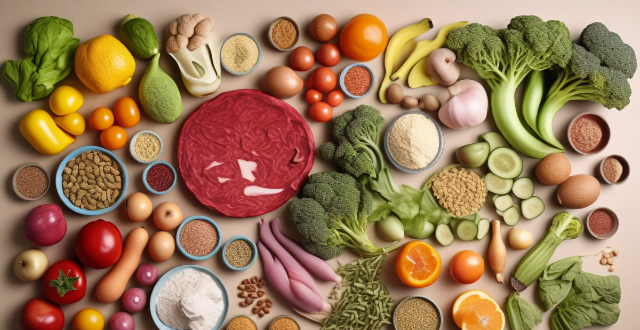
How can a healthy diet improve women's reproductive health ?
A healthy diet is crucial for women's reproductive health, affecting fertility, pregnancy, and menstrual health. Essential nutrients like folic acid and iron support conception and hormone regulation. Calcium, vitamin D, and magnesium can reduce PMS symptoms, while iron-rich and antioxidant-rich foods improve period health. During pregnancy, nutrients like folic acid and iodine are crucial for fetal development, and fiber and hydration maintain maternal health. A balanced diet can also prevent gynecological issues like fibroids and ovarian cysts. Additionally, weight management and mental health through a healthy diet promote overall well-being. Consulting healthcare professionals for personalized dietary advice is recommended.

Can diet and exercise affect memory according to scientific studies ?
Diet and exercise can positively impact memory, asDiet and exercise can positively impact memory, as a healthy lifestyle that promote cognitive while regular physical activity increases blood flow to the brain, reduces inflammation, and promotes the growth of new neurons. Conversely, a poor diet lacking in essential nutrients and lack of exercise can have negative effects on memory over time. Therefore, adopting a healthy lifestyle that includes a balanced diet and regular exercise is essential for maintaining good memory and overall brain health.

How do you safely eat street food while traveling ?
Eating street food while traveling can be a delicious and authentic way to experience local cuisine. However, concerns about hygiene and food safety can make some travelers hesitant. To safely enjoy street food, consider these tips: 1. Observe hygiene practices at the stall, such as cleanliness and food preparation methods. 2. Choose popular stalls where food turnover is high and locals are eating. 3. Start with small portions to test your tolerance for new flavors. 4. Be selective with proteins, avoiding raw or undercooked meats and seafood. 5. Drink only bottled beverages and avoid tap water. 6. Use common sense; if something doesn't look or smell right, move on. 7. Have hand sanitizer ready and pack wet wipes for cleaning utensils. 8. Clearly communicate any allergies or dietary restrictions in the local language. 9. Enjoy the experience but don't overdo it; pace yourself and maintain a balanced diet. By following these guidelines, you can minimize risks and fully enjoy the authentic culinary experiences that travel offers.
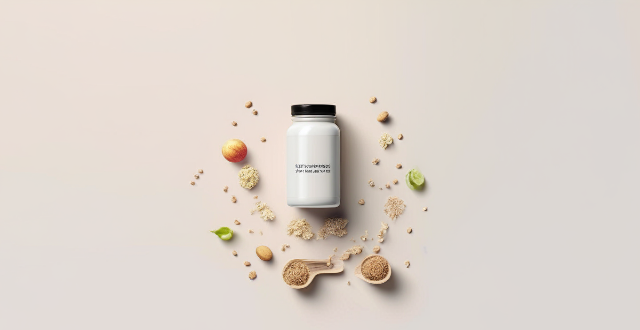
Are there any potential side effects of switching to a gluten-free diet ?
Switching to a gluten-free diet can have several potential side effects, including nutrient deficiencies, digestive issues, weight gain, headaches and fatigue, and higher cost. It is important to be aware of these potential side effects and take steps to ensure adequate nutrition on a gluten-free diet. Consultation with a healthcare professional is recommended before making any significant changes to your diet.
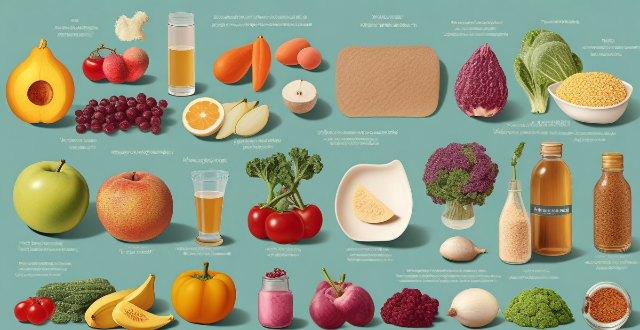
What are the potential risks associated with a high-fat diet ?
A high-fat diet, particularly one rich in saturated and trans fats, can pose several health risks. These include an increased risk of cardiovascular disease, obesity and weight gain, type 2 diabetes, liver disease, cancer, and digestive issues. It is essential to maintain a balanced diet that includes healthy fats while limiting the intake of saturated and trans fats found in processed foods and fried foods.